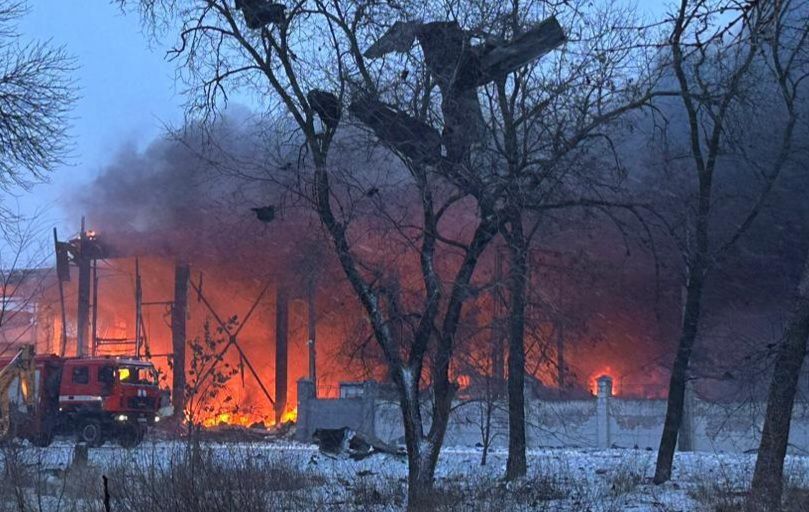Scholz criticizes EU for providing insufficient military aid to Ukraine.
Germany's military support for Ukraine is not enough to make up for the deficit from other EU countries, German Chancellor Olaf Scholz said at a press conference in Berlin on Jan.
8. Germany was widely criticized in the immediate aftermath of Russia's full-scale invasion for the country's sluggish and overly cautious approach to providing aid to Ukraine considering its status as the EU's biggest economy. It has since significantly increased its military support for Ukraine, becoming the second largest provider of military aid behind the U.S.
"As significant as the German contribution is, it will not be enough to ensure Ukraine's security in the long run," Scholz said. "Therefore I call on allies in the European Union to strengthen their efforts regarding Ukraine. The planned weapons deliveries to Ukraine of most EU member states are not enough." German Defense Minister Boris Pistorius said in November that the EU will fall short of its goal of providing 1 million shells to Ukraine by March 2024.
The bloc's plan to ramp up shell production to boost Ukraine's artillery capabilities has been plagued by bureaucracy and protectionism of individual countries, an investigation by the Kyiv Independent and its partners revealed. Ukraine's need for munition supplies becomes ever more pressing as Russia is boosting its defense budget for 2024 and was reportedly able to secure over 1 million shells from North Korea, while political infighting in Washington causes cutbacks in U.S. military support for Kyiv. Despite Scholz's pressure on EU allies to increase military support, he has also set limits on Germany's own provisions to Ukraine, blocking the delivery of long-range Taurus missiles over fears that the move will draw Germany into the war.
Former German President Joachim Gauck and other German figures have called for supplying Taurus missiles in recent days.
Russia unleashes morning airstrikes on Ukraine, killing 4, injuring over 30
Russian troops unleashed multiple cruise and ballistic missiles at Ukraine early on Jan.
8, killing four people and wounding over 30, Ukrainian authorities said.
Casualties and damages to civilian infrastructure were reported in Zaporizhzhia, Khmelnytskyi, Dnipropetrovsk, and Kharkiv oblasts.
